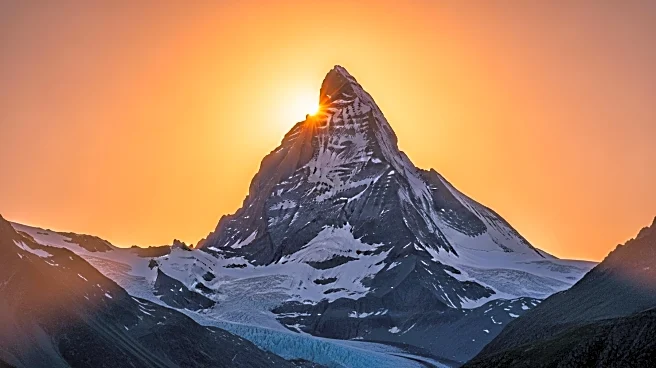What's Happening?
Swiss glaciers have melted at an 'enormous' rate this year, with a 3% reduction in total volume, marking the fourth-largest annual decline on record. This significant shrinkage is attributed to global warming, as reported by Swiss glaciologists. Switzerland, home to the most glaciers in Europe, has seen a 25% decrease in ice mass over the last decade. The Swiss glacier monitoring group GLAMOS and the Swiss Academy of Sciences noted that more than 1,000 small glaciers have already vanished. The melting was intensified by a winter with low snow depth and heat waves in June, the second-warmest on record, leading to early snow reserve depletion.
Why It's Important?
The rapid melting of Swiss glaciers has profound implications for hydropower, tourism, agriculture, and water resources in Europe. The loss of glaciers is reshaping Switzerland's landscape, causing geological instability and posing risks to infrastructure and communities. This environmental change highlights the urgent need for climate change mitigation efforts. The situation underscores the broader impact of global warming on natural resources and the necessity for international cooperation in addressing climate-related challenges.
What's Next?
Swiss authorities are vigilant about potential landscape changes due to glacier retreat. Continued monitoring and research are essential for predicting and managing the impacts of glacial loss. Efforts to reduce greenhouse gas emissions and combat climate change are critical to slowing the rate of glacier melting. The international community may need to develop strategies for managing the consequences of glacial retreat, including water resource management and disaster preparedness.
Beyond the Headlines
The situation in Switzerland reflects the global challenge of climate change and its impact on ecosystems. The loss of glaciers contributes to rising sea levels, affecting coastal regions worldwide. This case emphasizes the interconnectedness of global environmental systems and the need for comprehensive climate action to protect natural resources and human communities.











